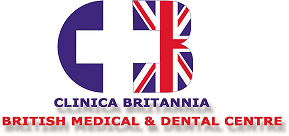Bruxism is a condition in which you grind, gnash, or clench your teeth. If you have bruxism, you may unconsciously clench your teeth when you’re awake or clench or grind them during sleep.
Sleep bruxism is considered a sleep-related movement disorder. People who clench or grind their teeth during sleep are more likely to have other sleep disorders, such as snoring and sleep apnoea.
In some people, bruxism can be frequent and severe enough to lead to jaw disorders, headaches, damaged teeth and other problems.
Because you may have sleep bruxism and be unaware of it until complications develop, it’s important to know the signs and symptoms of bruxism and to seek regular dental care.
Signs and symptoms of bruxism may include:
- Teeth grinding or clenching, causing tooth sensitivity or pain.
- Sleep disruption.
- Worn tooth enamel or fractured, chipped teeth.
- Tired or tight jaw muscles, or a locked jaw that won’t open or close completely
- Jaw, neck, or face pain or locking of the jaw due to muscle tightness.
- Earache and headache.
- Chewing on the inside of the cheek.
See your dentist or doctor if you have any of the symptoms listed above or have other concerns about your teeth or jaw.

